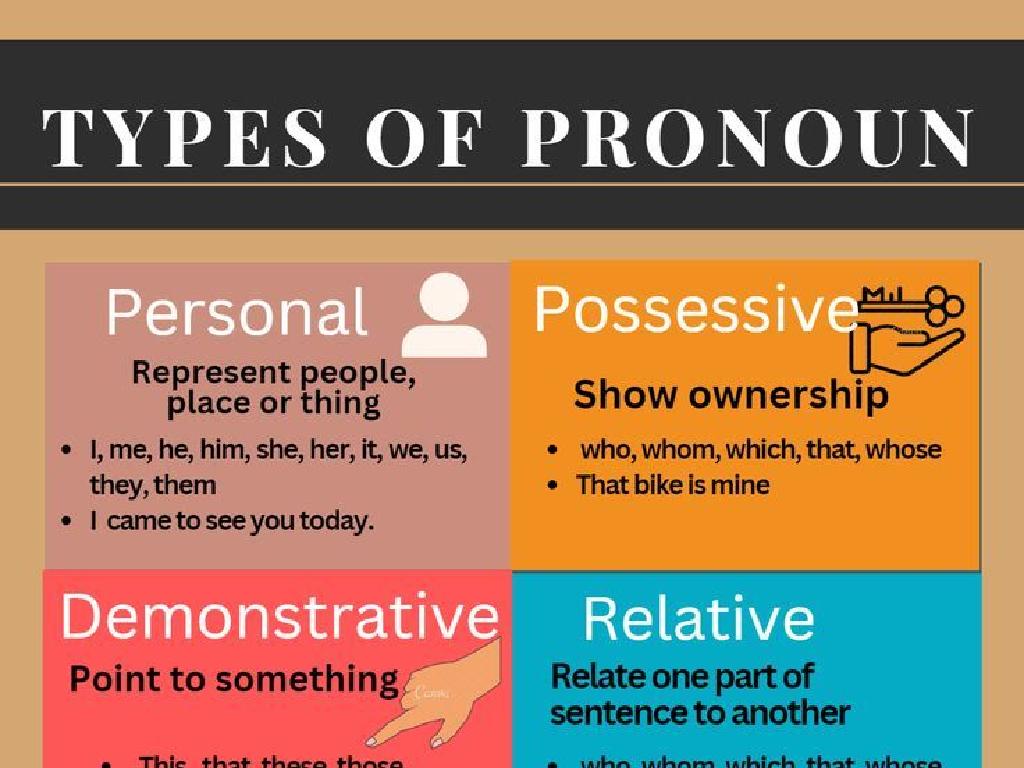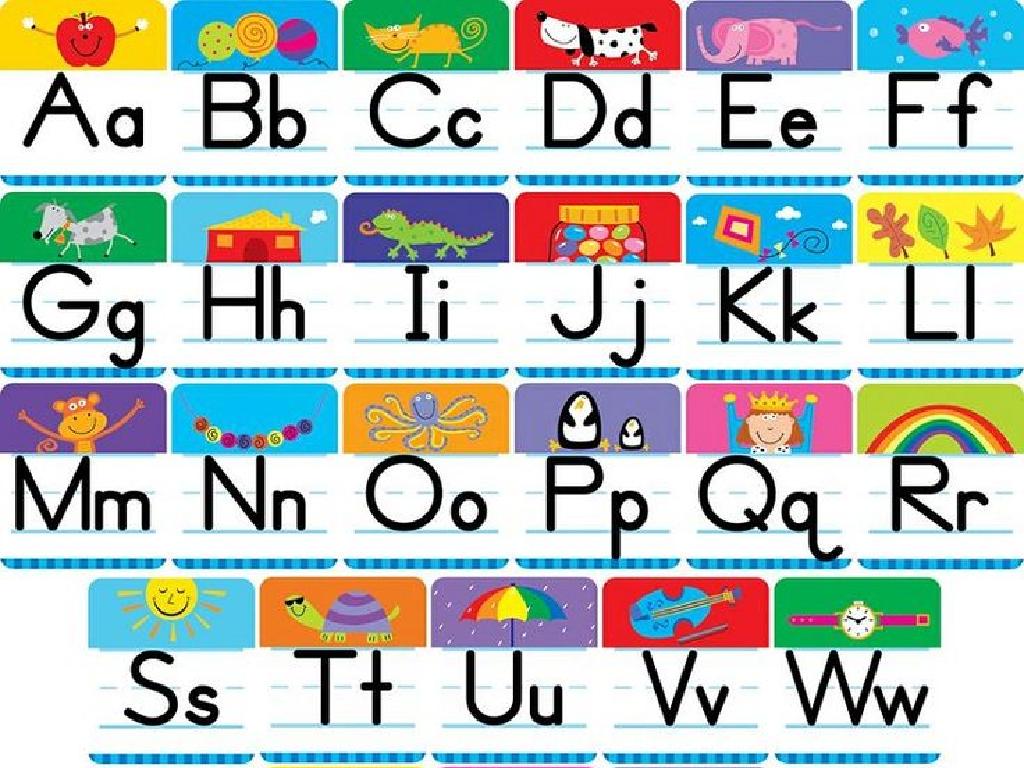Evaluate Claims About Natural Resource Use: Fossil Fuels
Subject: Science
Grade: Sixth grade
Topic: Natural Resources And Human Impacts
Please LOG IN to download the presentation. Access is available to registered users only.
View More Content
Understanding Natural Resources
– Our planet’s natural wealth
– Defining natural resources
– Materials or substances occurring in nature which can be exploited
– Renewable vs Non-renewable
– Renewable resources replenish over time, non-renewable do not
– Role of fossil fuels
– Fossil fuels are non-renewable and a major energy source
|
This slide introduces students to the concept of natural resources and their importance to life on Earth. It’s crucial to explain that natural resources are materials or substances that are found in nature and can be used for economic gain or consumption. Make sure to differentiate between renewable resources, like solar energy, which can be replenished naturally, and non-renewable resources, like coal, which cannot. Emphasize the significance of fossil fuels in our daily lives, but also discuss the impact of their use on the planet. Encourage students to think about how the use of these resources affects the environment and to consider alternative energy sources.
Understanding Fossil Fuels
– Definition of fossil fuels
– Fossil fuels are energy sources formed from the remains of ancient organisms.
– Types: Coal, Oil, Natural Gas
– Coal is solid, oil is liquid, and natural gas is gaseous.
– Formation of fossil fuels
– Formed over millions of years under heat and pressure from organic matter.
– Fossil fuels & energy
|
This slide introduces students to the concept of fossil fuels, which are crucial to our current energy needs but also pose environmental challenges. Begin with the definition, ensuring students understand that fossil fuels originate from the decayed remains of ancient plants and animals. Discuss the three main types of fossil fuels: coal, oil, and natural gas, highlighting their physical states and common uses. Explain the natural processes that lead to the formation of fossil fuels, emphasizing the timescale of millions of years. Conclude by touching on how these fuels are extracted and used to produce energy, setting the stage for a discussion on their impact on the environment and the importance of responsible usage.
The Importance of Fossil Fuels
– Fossil fuels in daily life
– Used for electricity, heating, and products like plastics
– Energy production reliance
– Most of our energy comes from coal, oil, and natural gas
– Transportation’s fuel needs
– Cars, buses, planes mostly run on gasoline or diesel
– Industrial use of fossil fuels
– Factories use them as energy source and raw material
|
This slide aims to highlight the critical role fossil fuels play in our everyday lives, from powering our homes and schools to fueling our cars and the industries that produce goods we use daily. Emphasize the prevalence of coal, oil, and natural gas in energy production and how our current infrastructure and technology are heavily dependent on these resources. Discuss the implications of this dependency on fossil fuels for transportation and industrial processes, including the challenges it presents for sustainability and the environment. Encourage students to think about how their lives are interconnected with fossil fuels and to consider alternative energy sources that could be used in the future.
Environmental Impact of Fossil Fuels
– Consequences of burning fossil fuels
– Burning releases CO2, leading to climate change.
– Air pollution from fossil fuels
– Emissions cause smog, acid rain, health issues.
– Greenhouse gases and their effects
– Gases like CO2 trap heat, altering Earth’s climate.
– Link between fossil fuels and global warming
– Fossil fuels are a major contributor to warming.
|
This slide aims to educate students on the environmental repercussions of using fossil fuels. Emphasize the cause-effect relationship between burning fossil fuels and the increase in air pollutants, which leads to various forms of air pollution. Discuss how these pollutants contribute to the greenhouse effect, which is responsible for global warming and climate change. Highlight the importance of understanding these impacts to evaluate the claims about fossil fuel usage critically. Encourage students to think about alternative energy sources and the role they can play in reducing our reliance on fossil fuels.
Evaluating Claims About Fossil Fuels
– Perspectives on fossil fuel use
– Some view as essential for energy, others as harmful for environment
– Arguments for continued use
– Economic benefits, energy security, and current infrastructure support
– Arguments against use
– Environmental impact, climate change, and sustainable alternatives
– Critical evaluation of claims
|
This slide aims to present a balanced view of the ongoing debate about fossil fuel use. Students should understand that different groups have varying perspectives on fossil fuels, often influenced by economic, environmental, and social factors. Proponents of fossil fuels may cite the stability they bring to the economy and the existing infrastructure that supports their use. Opponents often focus on the environmental damage caused by extracting and burning fossil fuels, including contributions to climate change and the availability of renewable resources as alternatives. Encourage students to critically analyze the validity of different claims, considering the evidence and the sources of information. This exercise will help them develop skills in critical thinking and reasoned argumentation.
Alternatives to Fossil Fuels
– Explore renewable energy sources
– Solar, wind, hydro, and geothermal power
– Understand benefits of renewables
– Less pollution, sustainable for future
– Discuss challenges of energy transition
– Cost, infrastructure, and adaptation hurdles
– Encourage sustainable practices
|
This slide aims to educate students on the importance of transitioning from fossil fuels to renewable energy sources. Introduce them to different types of renewable energy, such as solar and wind power, and discuss how these sources can lead to a more sustainable future with less environmental impact. Highlight the benefits, including reduced greenhouse gas emissions and the potential for infinite energy. Address the challenges that society faces in making this transition, such as the initial costs and the need for new infrastructure. Encourage students to think about how they can contribute to a sustainable future through simple practices in their daily lives.
Class Debate: Fossil Fuels
– Form Pro vs. Anti Fossil Fuel groups
– Prepare your arguments
– Use facts from today’s lesson to support your stance
– Present your viewpoint
– Each group will explain their position to the class
– Engage in a class debate
– Listen to opposing views and discuss respectfully
|
This activity is designed to encourage critical thinking and public speaking skills. Divide the class into two groups, one supporting the use of fossil fuels and the other opposing it. Students should use information learned in today’s lesson about the advantages and disadvantages of fossil fuel use to prepare their arguments. Each group will then present their arguments to the class. After presentations, open the floor for a structured debate. Encourage students to listen to each other’s viewpoints and respond thoughtfully. Possible activities for different students could include researching specific points to support their arguments, preparing visual aids to enhance their presentation, or formulating questions to challenge the opposing group.
Reflecting on Fossil Fuels and Our Impact
– Recap of fossil fuels impact
– Review how burning fossil fuels affects the environment.
– Personal reflection on making a difference
– Think about daily habits that contribute to fossil fuel use.
– Homework: Paragraph on fossil fuel stance
– Write your views on using fossil fuels and alternatives.
|
This slide aims to summarize the key points about the impact of fossil fuels on the environment and encourage personal reflection on how individual actions can make a difference. Students should consider how their daily activities, such as transportation and energy use, contribute to fossil fuel consumption. For homework, they are tasked with writing a paragraph expressing their stance on fossil fuel use, considering what they’ve learned about its effects and potential sustainable alternatives. This exercise will help them articulate their thoughts on the subject and understand the broader implications of their choices.





